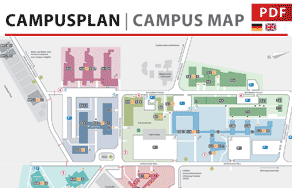The CoSA seminar will be held on August, 28th 2023 at 11:45am in room 18-02.13.
We have planned the following presentation:
- Kaya Runge: SDR Based 5G NR Scanner for Wireless Sensor Networks (WSN)
- Ole Sellhorn:Exploring AI-Based Adaptive Resource Management in 5G Networks
The presentations will last approximately 20 minutes followed by 10 minutes of discussion. We look forward to a lively and active participation.
The seminars can also be found at https://www.th-luebeck.de/cosa/. If you would like to offer a talk as well, please feel free to contact us (fabian.john(at)th-luebeck.de).
Kaya Runge: SDR Based 5G NR Scanner for Wireless Sensor Networks (WSN)
5G networks enable massive machine-type communication for wireless sensor networks in various applications. However, deploying and operating 5G networks requires monitoring tools for debugging which should be cheap and easy to use. These are not yet available. We propose a flexible 5G network scanner based on a software defined radio and MATLAB, which scans the environment for 5G networks and decodes 5G master and system information block. Our scanner has a smart scanning routine that adapts the gain and compensates the center frequency offset of the SDR. We also present a modular and distributed system architecture, allowing flexible post-processing. We demonstrate our scanner in a 5G Testbed and show how it supports network configuration and debugging. Our tool is simple, accessible, and flexibly adaptable for different scenarios and purposes.
Ole Sellhorn:Exploring AI-Based Adaptive Resource Management in 5G Networks
Resource allocation is a key challenge for gNB scheduler in 5G networks, for distributing limited resources to end devices. The scheduler's goal is to optimize transmission quality and quality of service for applications like real-time communication, video streaming, IoT, and autonomous driving. Traditional scheduling algorithms struggle to cope with the dynamic and heterogeneous demands of 5G networks, which result from the increasing number of connected devices, network traffic and application requirements. We propose Artificial Intelligence techniques for gNB scheduler and enable intelligent and adaptive resource allocation. By utilizing AI, the scheduler learn from network data, adapt to changing conditions, and optimize resource utilization and transmission quality for different applications. Our approach involves implementing three AI techniques: Performance comparisons between AI-based and classical scheduling algorithms are conducted using metrics such as network throughput, latency, packet loss, resource usage, and user satisfaction. The proposed AI-based scheduling algorithms have the potential to improve network performance, reduce congestion, conserve resources, and enhance the user experience in 5G networks.


